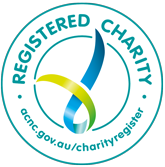In June 2023, we secured a two-year contract to upgrade open-source election auditing system for the US State of Colorado. The centrepiece of this project is the enhancement of the Risk-Limiting Audit (RLA) software – a technological tool deployed to validate election results by inspecting a random selection of votes. The project’s primary goal is to broaden the software’s scope to accommodate Instant-Runoff Voting (IRV) contests, where voters rank candidates based on preference.
Instant-Runoff Voting (IRV), also known as preferential voting in Australia, is a method that allows voters to rank candidates in order of preference. It is the primary system used for elections in Australia, with voters ranking candidates: ‘1’ for their first choice, ‘2’ for their second choice, and so on. A candidate who receives more than half of the first preferences is declared the winner. Suppose no candidate achieves an absolute majority of first-preference votes. In that case, the candidates with the least votes are eliminated, and their votes are redistributed according to the second preference indicated on those ballots. This process continues until a candidate receives more than 50% of the vote, achieving an absolute majority.
With the introduction of a 2017 law in Colorado, every significant election now undergoes an RLA to ensure the integrity of the voting process. As the system evolves, enhancements have been made to support audits across multiple jurisdictions and improvements to the user interface. Notably, CDOS is among the few electoral authorities globally that own and administer their open-source risk-limiting auditing system, emphasising the high standard of software development, transparency, and public accountability required for this project.
The contract we secured with the Colorado Department of State (CDOS) intends to take these enhancements further. Our two-year roadmap involves educating CDOS staff on IRV auditing, integrating IRV audit functions into the current software, developing intuitive interfaces, conducting thorough software testing pre-deployment, and providing ongoing support during the 2026 USA General Election. The collaboration also includes working with CDOS’s UI developers and Subject Matter Experts to create a seamless user experience and public reports that maintain transparency and trust.
The agreement paves the way for hiring two staff members. Dr Michelle Blom, an expert in Computer Science from The University of Melbourne and a veteran consultant on complex election audits, will serve as the project’s Risk-Limiting Audits for IRV Elections Lead Researcher. An experienced Java software developer will also be recruited to translate our research on efficient risk-limiting audits for preferential elections into a reliable software system under the supervision of Michelle and company Chairperson and Technical Lead, A/Prof Vanessa Teague. Our General Manager, Mark Pinoli, will be responsible for nontechnical aspects of project planning and organisation.
This expansion in our team underscores our commitment to fostering open, trustworthy audit processes for preferential elections and contributing significantly to a more robust democratic process.
Stay up-to-date with our project on GitHub:
https://github.com/DemocracyDevelopers








